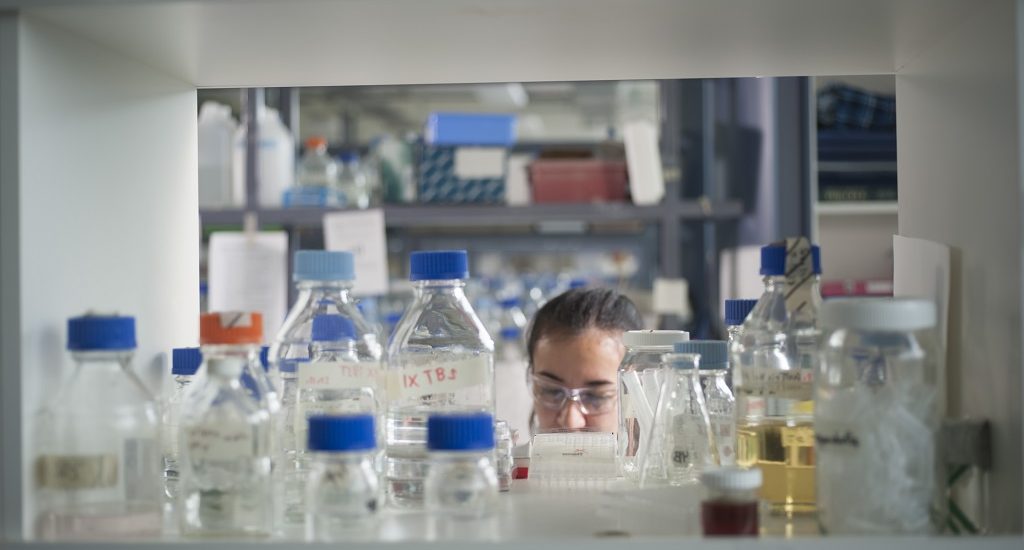- 19 August 2019
- Posted by: Canberra Innovation Network
- Category: General News

By Petr Adamek, CEO, Canberra Innovation Network.
Australian educational institutions have long succeeded in attracting ever-increasing numbers of international students.
Armed with enthusiasm and drive, they relish the opportunity to take advantage of our first-rate tertiary education.
The challenge we face as a nation is finding better ways to keep the most entrepreneurial of them here after graduation. Fostering skills and knowledge is very important, but we are missing on opportunities when these young talented people head back overseas even though they could stay and begin to create value here as entrepreneurs and innovators.
Throughout the world, there is increasing competition for the best and brightest minds. Firms based everywhere from Silicon Valley to Israel all battle to attract and retain skilled people.
As a nation, Australia is very well positioned to succeed in this global ‘war for talent’ and it is more important than ever that we focus on that. To succeed, however, we need to be bolder in how we do that.
Rethinking the visa system
One area we need to consider is our visa system. While this necessarily imposes restrictions on who can live and work in the country, it must also reflect the need for the nation to retain skilled entrepreneurs and innovators.
At the moment there is a Business Innovation and Investment visa which is aimed at aspiring entrepreneurs. This visa allows a holder to operate a new or existing business in Australia, however the associated criteria are quite stringent.
For the ‘Entrepreneur’ stream, an applicant must be able to provide a clear business plan for their proposed business activity. They must also have in place a funding agreement for at least $200,000 to support their business endeavours.
For the ‘Business Innovation’ stream, an applicant and / or their partner must have net personal and business assets of at least $800,000 ready to be moved to Australia within 2 years.
While this visa system might suit people with established business track records, it doesn’t work well for foreign talented technology students who have entrepreneurial potential, are passionate to help solve global challenges, and want to grow their ventures in Australia. These people are all too likely to end up in another country keen to capture their skills.
Clearly this situation needs to change. Australia needs to have a visa system that allows talented people to come to and remain in the country. Once established here, they can deliver significant long-term value to the economy by creating innovative new products and services.
Identifying innovative flair
As well as rethinking the current visa system, we also need to have methods in place for spotting individuals who are studying here and are demonstrating strong entrepreneurial flair.
Here, one option would be for the government to work closely with innovation centres to identify those promising students who are worthy of special treatment. These people could then be offered limited visas that would allow them to remain in Australia to work on their business ideas.
Innovation centres are well placed to help in this process. They attract entrepreneurially minded people and have become adept at assessing who are most likely to succeed.
Australia as a ‘hot bed’
To further improve the rate at which talent is retained in Australia, there also needs to be a concerted effort to market the nation as a ‘hotbed’ of innovation and entrepreneurship. We need to be seen around the globe as a country that is supportive of the spirit of innovation and one that has already produced many world-class success stories.
By promoting this narrative we will be better positioned to compete with the likes of Silicon Valley. However, we don’t have to go far to get inspired. New Zealand is exceptionally good in how they position their economy globally as highly innovative.
Beyond STEM
We also need to think about broadening the types of talent we are trying to develop. Currently the focus tends to be mostly on STEM (Science, Technology, Engineering and Maths) skills as the perception is our economy lacks those the most.
However, innovation can come from any area and we need to attract as diverse a group of people as possible. STEM is important but so too are skills such as design and creativity.
Attracting people who excel in these areas will add value in many different ways. It is the interaction of disciplines and the courage to define new ones that will generate the right environment for innovation and make us stand out internationally.
A great example in how we can be bolder is the 3A institute at the Australian National University. Led by an experienced Silicon Valley entrepreneur, Genevieve Bell, the 3Ai is blending knowledge from seemingly distant branches of science to create a multitude of new solutions for our future world.
Another example of initiatives being undertaken is the Canberra Innovation Network’s collaborative innovation program. It brings together diverse groups of people, including students and young researchers with a variety of skills and resources to tackle specific problems and big challenges in co-design sessions, competitions and hackathons.
The competitive character and limited time frames for the problem solving in combination with purposeful challenges, such as finding ways to save lives on roads or our planet by rapidly reducing CO2 emissions, plus prize money make these events very attractive for motivated talented entrepreneurial students who see participation as an opportunity to apply their knowledge to real world problems.
We have found that it is the interaction of different specialisations, mindsets and experiences that generates the most interesting and innovative solutions that deliver a real difference.
When coupled with lean startup workshops, the opportunity to apply for innovation grants, an investor-led accelerator program, or locating the team in an incubator space after the collaborative event, we have an end to end offering for teams of motivated founders who aspire to change the world.
To truly compete in a global knowledge economy, Australia needs to become much smarter at attracting and retaining skilled people who have the ability to build innovative companies. It’s a vital part of ensuring our economy remains resilient in coming decades.
This article was originally published on Startup Daily.

